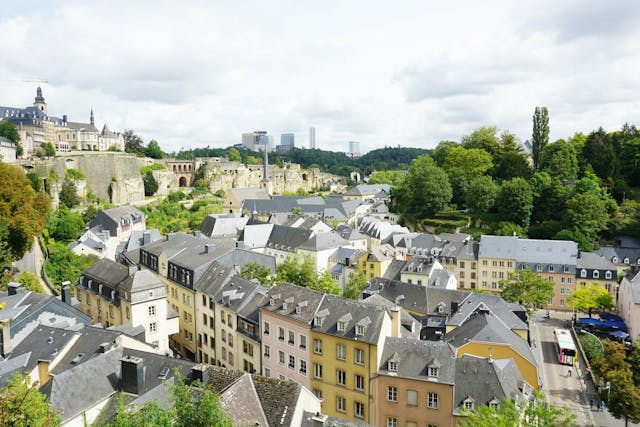Luxembourg is building the science of the future: investment, AI and talent retention

Official gouvernment website
In an interview with Paperjam, Luxembourg's Minister of Research and Higher Education, Stéphanie Obertin, outlined the priorities of the government's science strategy, which is increasingly transforming the Grand Duchy into a centre of knowledge and technology.
The main focus today is the development of artificial intelligence, which should not only be efficient, but also ethical, transparent and sparing of resources. One of the key projects is 4LM, aimed at introducing AI in the field of regulation. It should ease administrative tasks for both citizens (e.g. in tax reporting) and companies (GDPR compliance), and even simplify legislative processes. This is part of a large-scale technological course that covers three interrelated areas at once: AI, work with data and quantum technologies. These areas are enshrined in government strategies developed in co-operation between four ministries and approved in May 2025.
In addition, there is a strong focus on education. The University of Luxembourg and the research institute LISER are working on big data analysis to predict labour market needs. There is also research on inclusion, equality, education policy and technology. There is also the LMDDC (Luxembourg Media and Digital Design Centre), established as a digital learning centre, which develops innovative platforms and digital solutions for the entire education system.
Luxembourg is also actively developing medical research. The LCTR-Fuerschungsklinik, which opened in 2022, was a joint initiative of several hospitals and institutes and now serves as a bridge between laboratory development and clinical practice. Here, personalised diagnostic and treatment methods for chronic diseases, including cancer, neurodegenerative and autoimmune disorders, are created.
When asked whether the country has enough scientists to realise all these ambitions, Stéphanie Obertin answers: yes, but more is possible. There are now around 3,000 researchers working in Luxembourg, and 70 per cent of Master's and PhD graduates stay in the country - a good figure by world standards. The country actively attracts foreign specialists by maintaining high quality research centres and offering competitive conditions. The Foundation for National Research (FNR) manages the Pearl and Attract programmes: the former invites experienced scientists, the latter young researchers looking to build their team. Support can reach up to €2 million, and up to two projects are planned to be funded each year. In addition, Luxembourg participates in the Euraxess initiative, which supports the mobility of scientists in Europe, and uses the Research Luxembourg platform for international promotion.
Higher education also plays an important role in attracting and retaining talent. Since 2025, a Competence Centre has been integrated into the university, expanding the opportunities for continuous learning. This allows not only to adapt specialists to the rapidly changing labour market, but also to attract new professionals. The university is developing programmes in the areas demanded by the economy: services, engineering, healthcare, IT, including new master's degrees in cybersecurity, high computing and data science. Thanks to equal conditions for European and non-European students, the university attracts many foreigners: 57 per cent of students are from outside Luxembourg, of which 20 per cent are from outside the EU.
Responding to a question about the "brain drain" from the US due to political instability, Stéphanie Obertin emphasised: Luxembourg does not engage in active poaching, but has noted an increase in the number of requests from US researchers.
In addition, it is important not only to create knowledge, but also to turn it into economic value. For this purpose, a TTSG (Tech Transfer Strategy Group) has been established, including representatives of ministries, incubators and research organisations. Its task is to remove barriers to the creation of spin-offs and start-ups based on scientific developments, to eliminate inconsistencies in intellectual property law and to build a transparent system that is attractive to the industry. The focus here is not on the number of patents, but on turning the results into a working business that creates jobs.
In addition, data management remains a key issue. Bill No. 8395, introduced in June 2024, establishes a centralised architecture for managing access to data without physical centralisation. In this way, data remains with the owners but is made available in a secure environment. This creates flexibility and makes Luxembourg more attractive than other countries.
Two key reforms are planned for the coming months: updating the law on the FNR, which is no longer just a grantmaker but is also actively involved in the commercialisation of science, and reforming the student financial aid system. Diploma awards are being introduced, mobility grants and interest rate subsidies are being increased.
Thus, Luxembourg's scientific ecosystem is developing at high speed. AI, quantum technologies and medicine are not slogans, but working tools. And behind the ambitious strategies are real actions: attracting scientists, international grants, legislative reforms and building channels to turn science into a business.





